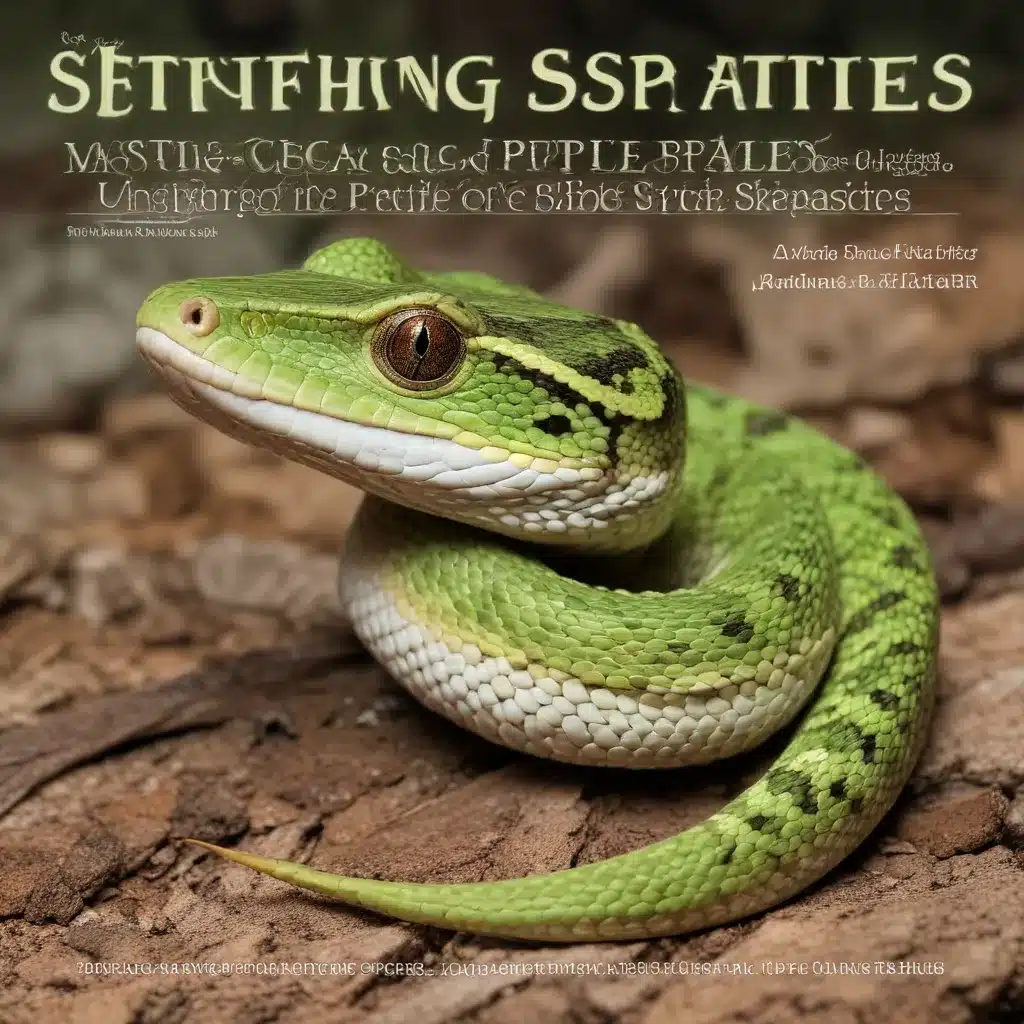
Exploring the Allure of Exotic Reptiles
The captivating world of exotic reptiles has long captured the fascination of reptile enthusiasts, breeders, and pet owners alike. These remarkable creatures, with their unique adaptations and captivating behaviors, offer a compelling and rewarding experience for those willing to dive into the nuances of their care and breeding.
Whether you’re drawn to the vibrant colors and striking patterns of a rare species or the graceful movements of an aquatic turtle, the joys of nurturing and observing these reptilian wonders are truly unparalleled. However, delving into the world of exotic reptiles requires a deep understanding of their specialized needs, from precise environmental conditions to intricate breeding techniques.
Comprehensive Reptile Care: Creating a Thriving Environment
Providing the optimal environment for exotic reptiles is the cornerstone of successful ownership and breeding. Each species has its own unique set of requirements, and understanding these specifics is crucial to ensuring the health and well-being of your reptilian companions.
Temperature and Humidity Control
Maintaining the correct temperature and humidity levels is essential for reptile health. Many species require precise basking and cooling zones within their enclosures, as well as carefully regulated humidity levels to prevent respiratory issues and promote proper shedding. Investing in high-quality thermometers, hygrometers, and heating/cooling equipment is a must for creating a truly tailored environment.
Lighting and UVB Exposure
Proper lighting is another critical aspect of reptile care. Reptiles rely on a combination of natural and artificial light sources to regulate their circadian rhythms and metabolic processes. Ensuring adequate UVB exposure is particularly important for calcium absorption and overall health. Carefully selecting the right bulbs and lighting schedules can make a significant difference in the well-being of your reptile.
Substrate and Enclosure Design
The substrate and overall enclosure design play a crucial role in maintaining a clean, comfortable, and stimulating environment for your reptile. Factors such as substrate depth, burrowing opportunities, and the incorporation of hiding spots and basking areas should be meticulously considered to mimic the animal’s natural habitat.
Dietary Requirements and Nutrition
Reptiles have diverse dietary needs, and meeting these requirements is essential for their growth, reproduction, and overall health. Carefully researching the appropriate prey items, supplementation, and feeding schedules for your particular species is a must. Maintaining a balanced diet can be challenging but is crucial for the longevity and well-being of your reptile.
Mastering Reptile Breeding: Ensuring Genetic Diversity and Health
Breeding exotic reptiles requires a deep understanding of their reproductive behaviors, development, and genetic considerations. Responsible breeders prioritize the preservation of genetic diversity and the overall health of their animals, ensuring the continued propagation of thriving reptile populations.
Reproductive Cues and Courtship Behaviors
Comprehending the unique reproductive cues and courtship behaviors of different reptile species is the first step in successful breeding programs. Factors such as temperature fluctuations, photoperiod changes, and social interactions can all play a role in triggering the breeding instinct in reptiles. Observing and understanding these natural patterns is crucial for creating the optimal conditions for mating and egg production.
Incubation and Hatchling Care
Once eggs have been laid, the incubation process requires meticulous attention to temperature, humidity, and other environmental factors to ensure successful hatching. Maintaining the appropriate incubation parameters, monitoring for developmental milestones, and providing proper hatchling care are all essential elements of a thriving breeding program.
Genetic Diversity and Selective Breeding
Responsible breeders prioritize the maintenance of genetic diversity within their reptile populations. This involves carefully selecting breeding pairs, monitoring lineages, and introducing new bloodlines to prevent inbreeding and the propagation of genetic disorders. Selective breeding for desired traits should be approached with a deep understanding of the species’ genetic makeup and potential health implications.
Navigating the Legal Landscape of Exotic Reptile Ownership
The legal requirements and regulations surrounding the ownership and sale of exotic reptiles can vary significantly depending on your location. It is crucial for reptile enthusiasts, breeders, and pet owners to thoroughly research and comply with all applicable laws and guidelines to ensure the responsible and legal management of their animals.
Permitting and Registration Requirements
Many regions require specific permits or registrations for the ownership and breeding of exotic reptile species. Failing to obtain the necessary documentation can result in severe penalties and the potential seizure of your animals. Carefully reviewing local and national regulations is a critical first step in ensuring legal compliance.
Import/Export Regulations and CITES
The international trade of reptiles is governed by the Convention on International Trade in Endangered Species of Wild Fauna and Flora (CITES). This agreement regulates the import, export, and re-export of protected species to prevent overexploitation and promote conservation efforts. Responsible breeders and sellers must familiarize themselves with CITES requirements and ensure that all transactions adhere to the appropriate guidelines.
Animal Welfare and Ethics
Beyond the legal aspects, the ethical treatment of reptiles is of paramount importance. Responsible breeders and owners must prioritize the well-being of their animals, ensuring they are housed in suitable environments, provided with proper care and nutrition, and protected from undue stress or harm. Adhering to animal welfare standards not only benefits the reptiles but also promotes the responsible and sustainable growth of the exotic reptile industry.
Conclusion: Embracing the Complexity and Rewards of Exotic Reptile Ownership
Navigating the world of exotic reptiles requires a deep understanding of their specialized needs, a commitment to responsible breeding practices, and a keen awareness of the legal landscape. By embracing the complexities of reptile care and breeding, reptile enthusiasts, breeders, and pet owners can unlock the joys of nurturing these remarkable creatures and contribute to the preservation of diverse and thriving reptile populations.
Whether you’re a seasoned reptile enthusiast or just beginning your journey into this captivating realm, the guidance and resources available on ExoticReptilesSale.com can help you unlock the full potential of your reptilian companions and ensure their well-being. Embark on this slithering adventure with the knowledge and dedication required to provide exceptional care and contribute to the continued appreciation and conservation of these unique and remarkable species.

